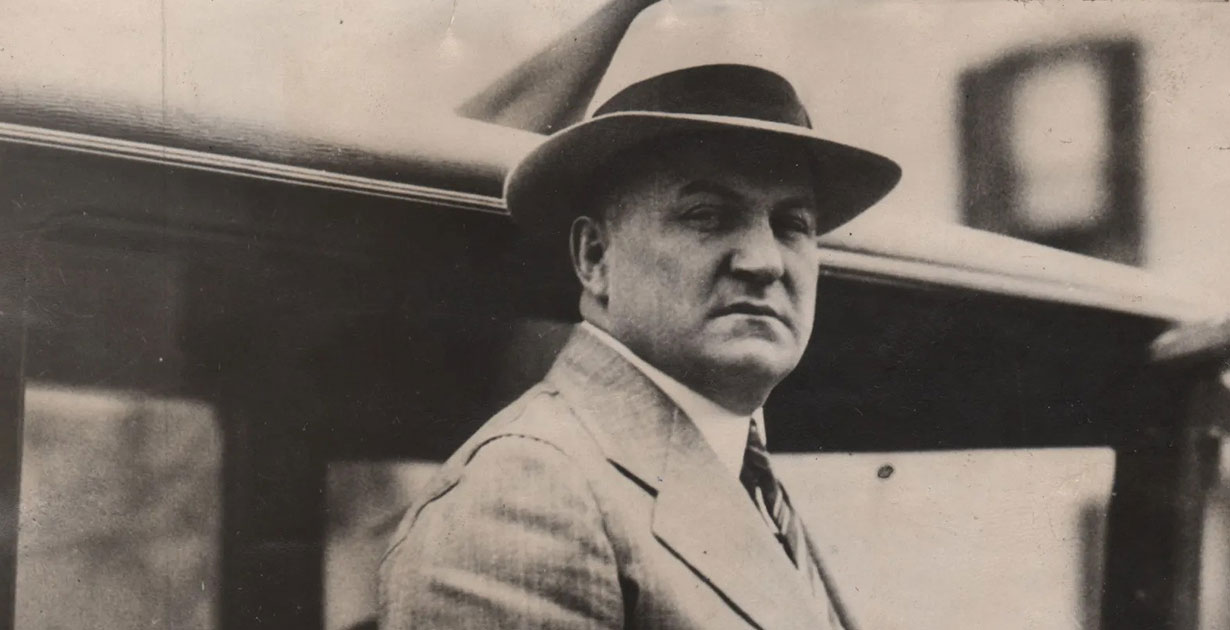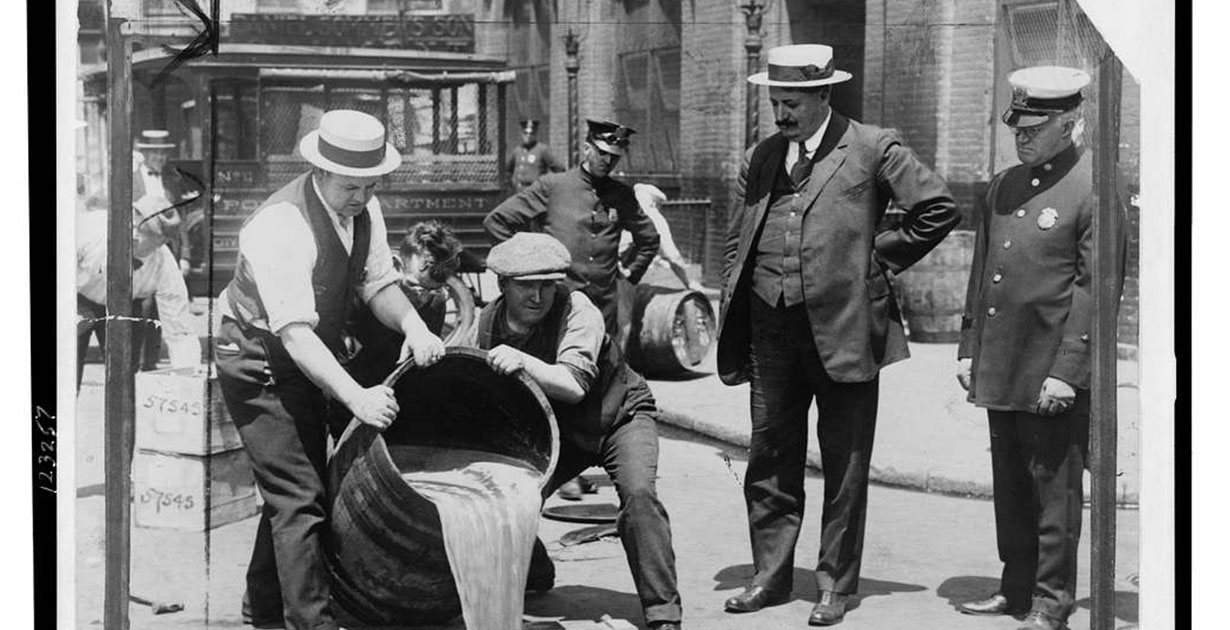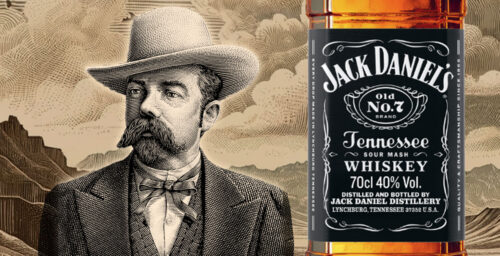
When someone says “1920s America” you might automatically conjure images of wild parties, with flapper girls dancing and booze flowing. This is a fantastical image, like something you will see in the 2013 Baz Luhrmann movie The Great Gatsby. For one man, at least, this vision was not so far from reality.
The King of the Bootleggers
George Remus is known to history as the “King of the Bootleggers”, owing to the clever and careful schemes that made him the richest and most powerful man in Cincinnati, Ohio. Remus was famous for his flamboyant parties and was even said to have inspired the character of Jay Gatsby as written by F. Scott Fitzgerald.
The story of George Remus’s life truly does read like a movie script. So, let’s take a look at who George Remus was, and why history remembers him as one of the most successful bootleggers of the Prohibition era.
George Remus’s Early Life
George Remus was born in Germany in 1878 to parents Frank and Marie. In 1882, the family emigrated from Germany to the United States, eventually settling in Chicago in 1885.
Remus began working at his uncle’s pharmacy at age 14, and purchased the pharmacy from him in 1899. In that same year, he married and his daughter, Romola, was born in 1900.
At the age of 24, Remus was disillusioned with his career and decided to retrain as a lawyer. He was appointed to the Chicago Bar in 1904 and began building a career as a criminal defense lawyer.
One of Remus’s most famous cases was the defense of William Cheney Ellis in 1914. Ellis was accused of murdering his wife. George Remus employed a novelty defense strategy known as “transitory insanity”. This later evolved into what we know today as the “temporary insanity” defense.
As Prohibition laws around the United States came into effect in the ensuing years, Remus found himself representing small-time bootleggers, whom he noticed were making huge amounts of money from their legal enterprises. As such, this young lawyer decided that maybe breaking the law, rather than practicing it, was the way to go.
George Remus’s Criminal Plan

Being trained in the field of law, Remus decided that his best way of succeeding in the bootlegging business was to exploit a loophole in the recently enacted Volstead Act (or National Prohibition Act). The act was drafted by Wayne Wheeler, the leader of the Anti-Saloon League – an influential organisation of the temperance movement. It provided the rules for enforcement of the nationwide alcohol ban.
Remus studied the act in great detail and found the loophole that he was looking for. In Title II Section 6 of the Volstead Act it is said that “[n]o one shall manufacture, sell, purchase, transport, or prescribe any liquor without first obtaining a permit from the commissioner so to do, except that a person may, without a permit, purchase and use liquor or medicinal purposes […]”. Additionally, the act stated that “nothing in this Act shall prohibit the purchase and sale of warehouse receipts covering distilled spirits on deposit in Government bonded warehouses […]”.
All of the above meant that Remus’s pharmaceutical knowledge would be very useful indeed. George Remus devised a cunning plan. First, he would set up a drug company, so that he had a legal reason to order and receive liquor. Then, he would set up his own transport company to ship the liquor.
And finally, he would purchase Government bonded warehouses, all filled to the brim with liquor. Once these pieces were in place, Remus planned to ship the liquor from the warehouses to his so-called drug company but hijack his own shipments on the way. This way, he could sell the “stolen” whiskey for a huge profit.
The Most Powerful Man In Cincinnati
Chicago was the hub of bootlegging activity as early as 1919. As such, George Remus decided to set up his criminal enterprise elsewhere. Somewhere he could take a monopoly on such a business.
It just so happened that there were a huge number of Government bonded warehouses surrounding Cincinnati, Ohio, containing around 80% of all pre-prohibition liquor. And so, Remus left his wife and moved to Cincinnati with his new girlfriend, Imogene Holmes, whom he married soon after.
In Cincinnati, Remus began to build his criminal enterprises; his transport and drug businesses were set up, he called in favours with federal associates in order to obtain the permits he needed, and he purchased a farm called Death Valley where he could store the whiskey.
Death Valley was just one of Remus’s huge distillery operations, with whiskey runners, armed guards, and around 3,000 workers on site. Remus also paid off law enforcement officers to keep his enterprise under wraps, so much so that almost every police officer and Prohibition agent in the city was receiving kickbacks from Remus’s schemes.

As predicted, George Remus became an extremely wealthy man and purchased a mansion named The Marble Palace. Here, he would host extravagant parties with copious amounts of alcohol, dancing, and socialising. He was also known for giving his guests extravagant gifts such as diamond stickpins and even cars.
It was through these parties that he came to the attention of F. Scott Fitzgerald, the author of The Great Gatsby (1924). They met multiple times at the Seelbach Hotel in Louisville. It is said that George Remus served as the inspiration for the iconic character of Jay Gatsby, although other people are also credited with this. Jay Gatsby was the subject of gossip and speculation in the novel, surrounding the origins of his great wealth. It was suggested that he was a bootlegger.
The Downfall of Remus’s Empire
In the early to mid-1920s, assistant attorney general Mabel Walker Willebrandt was tipped off about Remus’s bootlegging operation, and began to investigate. She sent one of her top agents, Franklin Dodge, out to Cincinnati to compile evidence against the king of the bootleggers.
In yet another Hollywood-like twist, Franklin Dodge began an affair with Remus’s wife, Imogene. Together, they conspired to dismantle her husband’s empire and make off with his money.
Meanwhile, one of Remus’s shipments (in one of his own vehicles) was flagged in Cincinnati, and enforcement agents found whiskey wrapped in newspapers. When they followed the evidence back to Cincinnati, they raided Death Valley Farm, uncovering Remus’s alcohol stores, weapons, and underground tunnels as well as business records. Finally, there was enough evidence to take Remus down.

George Remus spent the next two years in (a rather comfortable) prison in Atlanta, all the while hearing increasing rumours of his wife’s affair. At the same time, Imogene and Franklin were systematically liquidating George’s assets and hiding money around the country.
When Remus was released from prison in 1927, he found that Imogene had filed for divorce. On October 6th, 1927, he was being driven to a courthouse in Cincinnati when he saw Imogene on the street. After yelling at the driver to stop the car, he exited and chased her into a local park where he shot her in the abdomen in front of a crowd of onlookers. Imogene Holmes died on the way to the hospital.
George Remus’s Murder Trial
Again, George Remus’s prior experience proved useful to him. When he was brought to trial for murder he elected to represent himself. Taking a leaf out of his old law playbook, he decided to use the “temporary insanity” defense that had all but saved William Cheney Ellis’s life over 10 years prior.
Remarkably, after just 19 minutes of deliberation, the jury acquitted George Remus of murder. He was sent to an asylum for several months and then became a free man once more.
George Remus lived in relative obscurity for 20 years before he died at the age of 73 in 1952, survived by his third wife and his daughter, Romola.
Your Move, Hollywood
George Remus’s life was filled with crime, partying, booze, love, and betrayal. The story of a German immigrant who came to the United States and lived the ultimate American dream during the Prohibition era.
Despite his relatively short run as a criminal mastermind, George Remus is known as the King of the Bootleggers, owing to his monopoly on approximately one-third of illicit liquor sales at his peak.
This seems like the sort of story that would make a great blockbuster movie. Your move, Hollywood.









